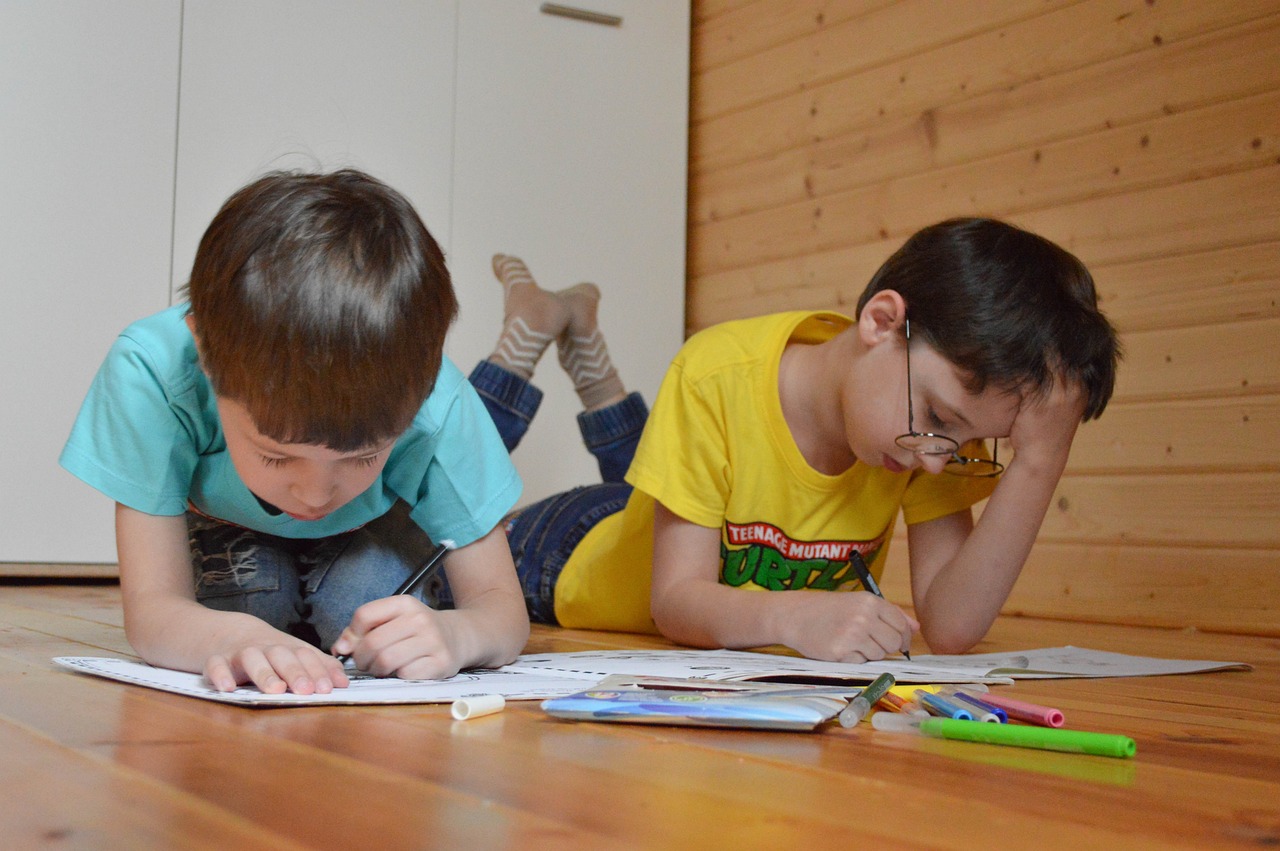Is Unschooling the Best Way to Learn?
Table of Contents
The traditional educational system has been around for centuries, and while it has its benefits, it also has its flaws. Unschooling is a method of education that challenges the idea of traditional schooling and takes a more child-led approach to learning. It allows children to follow their interests and passions, rather than being forced to follow a predetermined curriculum. Unschooling is a controversial topic, but it has gained popularity in recent years as more parents are realizing the benefits it can provide.
In this post, we will explore why unschooling is the best way to learn and 5 benefits it brings to a child’s learning skills. We’ll discuss the importance of self-directed learning, the benefits of learning through play, and the flexibility that unschooling provides. Whether you’re a parent considering unschooling for your child or simply curious about this alternative form of education, this post is for you.
What is unschooling?
Unschooling is a unique approach to education that focuses on the child’s interests and passions rather than a set curriculum. In an unschooling setting, children are encouraged to learn through their own experiences, whether it be through reading books, watching videos, playing games, or exploring their surroundings. This approach allows children to take control of their own learning and discover subjects that they are genuinely interested in, rather than being forced to study topics that may not interest them at all.

Unschooling also emphasizes the importance of real-world experiences and encourages children to learn through hands-on activities. This could include anything from visiting museums, attending concerts, volunteering in the community, or simply exploring the outdoors. By engaging in these types of activities, children are able to learn about the world around them in a more meaningful way.
Another key aspect of unschooling is that it is child-led. This means that the child is in charge of their own learning and there are no rigid schedules or deadlines to follow. Instead, parents act as facilitators, providing resources and support as needed, but ultimately allowing the child to determine the pace and direction of their learning.
How is unschooling different from traditional education?
Unschooling is a very different approach to education than traditional schooling. While traditional education is structured, formal, and standardized, unschooling is flexible, informal, and personalized. In unschooling, children have the freedom to choose what they want to learn, how they want to learn, and when they want to learn. They are not bound by curriculum or schedules, and there are no tests or grades.

The philosophy behind unschooling is that children are born curious and eager to learn and that they will naturally pursue their interests and passions if given the opportunity.
Unschooling recognizes that every child is unique and has different learning styles, strengths, and needs and that the best way to learn is by following their own interests and natural curiosity.
In traditional education, children are taught what to learn and how to learn it, and they are expected to conform to a set of standards and benchmarks. The curriculum is usually designed to cover a broad range of subjects, regardless of the child’s interests or abilities. There is little room for creativity, exploration, or self-discovery.
In contrast, unschooling allows children to learn at their own pace and in their own way. They can delve deeply into subjects that interest them, and they can explore new topics and ideas without the pressure of tests or grades. Unschooling also encourages children to take responsibility for their own learning and to develop critical thinking, problem-solving, and decision-making skills. Overall, unschooling is a more natural, child-led approach to education that respects and nurtures the individuality of each child.
Benefits of Unschooling
Unschooling is a revolutionary approach to education that has gained popularity in recent years. The idea behind unschooling is simple – children learn best when they are allowed to follow their passions and interests. In this section, we will discuss the top five benefits of unschooling.
1. Individualized learning
With unschooling, children are free to learn at their own pace and in their own way. This means that they can focus on their strengths and interests while taking the time they need to master new concepts or skills.
2. Increased motivation
Unschooling allows children to take ownership of their learning. They are more motivated to learn when they are interested in the subject matter and are given the freedom to pursue it in their own way.
3. Development of life skills
Unschooling encourages children to learn life skills that are relevant to their interests and goals. For example, if a child is interested in cooking, they may learn math and science concepts while experimenting with recipes.
4. Flexibility
Unschooling allows for a flexible schedule, which can be beneficial for families who travel frequently or have other commitments. Children can learn on the go and take advantage of learning opportunities as they arise.
5. Stronger family bonds
Unschooling often involves parents and children learning together. This can strengthen familial bonds and create a more collaborative learning environment where everyone is invested in each other’s success.
Benefit #1: Tailored education to each child’s needs
One of the major benefits of unschooling is the ability to provide tailored education to each individual’s needs. Traditional school systems are designed to provide the same curriculum to all students, regardless of their interests, strengths, or weaknesses. This can be frustrating for students who may feel bored or unchallenged by the material, or overwhelmed and unable to keep up with the pace of the class.

Unschooling, on the other hand, allows for personalized learning experiences that are tailored to each individual’s needs, abilities, and interests. Students can learn at their own pace and in a way that is meaningful to them. For example, if a child has a particular interest in science, they can spend more time exploring that subject and diving deeper into the topics that pique their curiosity.
This not only makes learning more engaging and enjoyable, but it also helps students to develop a deeper understanding of the material. By focusing on their interests and passions, they are more likely to retain information and apply it in real-world situations. This tailored approach to education can also help students to identify their strengths and weaknesses, and to develop the skills they need to succeed in their chosen path.
Benefit #2: Encourages self-directed learning
Unschooling is an approach to education that emphasizes self-directed learning, and it is highly effective in encouraging students to take ownership of their education. The unschooling philosophy is founded on the belief that children are naturally curious and eager to learn about the world around them. When given the freedom to explore their interests and passions, they will naturally seek out the knowledge and skills they need to pursue their goals. This approach is in stark contrast to traditional classroom education, which is often highly structured and rigidly organized, leaving little room for students to pursue their own interests.

Encouraging self-directed learning is crucial in unschooling. Children learn at their own pace, in their own way, and in their own time. They are free to explore whatever interests them, whether it’s science, art, music, or anything else. This approach allows students to develop a deep understanding of their interests and passions, and to pursue them with passion and enthusiasm.
Moreover, self-directed learning helps to foster a sense of responsibility and independence in students. They learn to manage their own time, set their own goals, and take responsibility for their own learning. By doing so, they develop a sense of ownership over their education, and they become more invested in the learning process. They are less likely to simply go through the motions and more likely to actively engage with the material and seek out new knowledge and experiences.
Benefit #3: Fosters creativity and innovation
One of the most significant benefits of unschooling is that it fosters creativity and innovation in children. In traditional schools, children are often required to follow a strict curriculum and adhere to rigid teaching methods. This can stifle their creativity and imagination, leaving them little room to explore their interests and passions.
Unschooling, on the other hand, encourages children to pursue their interests and passions, which inevitably leads to more creativity and innovation. When children are given the freedom to explore their interests, they are more likely to come up with new ideas and solutions to problems. This is because they are not constrained by traditional teaching methods or limited by what is considered “right” or “wrong”.

Unschooling allows children to learn and create at their own pace, which can lead to a deeper understanding of the subject matter. Traditional schooling often forces children to learn at a predetermined pace, which can lead to frustration and boredom for some children, while others might not be able to keep up. With unschooling, children are free to explore a topic in-depth and at their own pace, which can lead to a more thorough understanding of the subject.
Benefit #4: Promotes critical thinking and problem-solving skills
Unschooling is an educational approach that prioritizes the child’s interests and curiosity in determining what and how they learn. By allowing children to learn in this way, unschooling promotes critical thinking and problem-solving skills, which is our fourth benefit.
Unschooling provides children with the opportunity to take an active role in their own learning. Since they get to determine what they learn, they are more likely to be engaged in the subject matter, leading them to ask more questions and explore more deeply. This, in turn, helps to develop their critical thinking skills.

With unschooling, children learn by doing, which is an excellent way to promote problem-solving skills. They are encouraged to experiment, make mistakes, and learn from them, which helps them develop a growth mindset. As they learn through trial and error, they become more comfortable with taking risks and are better equipped to handle challenges in the future.
Moreover, the flexibility of unschooling allows children to explore different subjects and topics at their own pace. They can take as much time as they need to fully understand a concept or move on to something else if they feel they have mastered it. This freedom to learn without constraints helps to build their problem-solving skills as they are continuously challenged to think outside the box.
Benefit #5: Encourages a love of lifelong learning
One of the greatest benefits of unschooling is that it encourages a love of lifelong learning. When children are allowed to follow their own interests, they become passionate about the subjects that fascinate them.
Traditional schooling often focuses on grades, tests, and memorization, which can turn learning into a chore rather than a joy. But unschooling gives children the freedom to explore and discover on their own terms, making learning enjoyable and exciting.

When children are free to learn at their own pace, they can dig deeper into subjects that interest them and truly understand them on a deeper level. This can lead to a lifelong love of learning and a desire to continue exploring and discovering new things as they grow older.
In addition, unschooling allows children to develop critical thinking skills and problem-solving abilities that will serve them well throughout their lives. By following their own interests and finding their own solutions to problems, they become independent thinkers who are able to navigate the world with confidence and creativity.
Common misconceptions about unschooling
There are many misconceptions about unschooling that can make it difficult for people to understand or accept. One of the biggest misconceptions is that unschooling is the same as not learning anything at all. This is simply not true. Unschooling is all about self-directed learning, which means that children are encouraged to explore their interests and passions in a way that is meaningful to them. This often leads to a deeper level of engagement and learning than traditional schooling methods can provide.
Another common misconception is that unschooling is only for hippies or radical unschoolers who don’t believe in any structure or rules. While it’s true that many families who choose unschooling do so because they have a more relaxed approach to education, this doesn’t mean that there are no rules or a structure in place. In fact, most unschooling families have a strong emphasis on communication, collaboration, and setting goals together.
Some people also believe that unschooling is only suitable for certain types of learners, such as those who are highly self-motivated or have a natural love of learning. However, unschooling is actually a great fit for a wide range of learners, including those who struggle in traditional school environments. Because unschooling is all about finding what works best for each individual learner, there’s no one-size-fits-all approach.
Finally, some people believe that unschooling is just too risky and that children who aren’t following a curriculum or taking standardized tests won’t be prepared for the real world. However, research has shown that unschoolers are often highly successful in their adult lives, with a strong sense of self-direction and a passion for lifelong learning. In fact, many unschoolers have gone on to attend some of the top universities in the world and have successful careers in a wide range of fields.
How to get started with unschooling
If you’ve decided that unschooling is the right choice for your family, then congratulations! You’re embarking on an educational journey that is both exciting and challenging. Here are some steps to get started with unschooling:
Research and read about unschooling
Before you start, it’s important to understand the philosophy behind unschooling. Read blogs, articles, and books to gain a better understanding of what unschooling is and how it works.
Talk to other unschooling families
Join online groups or attend local unschooling meetings to connect with other families who are unschooling their children. They can offer advice, support, and guidance as you begin your unschooling journey.
Follow your child’s interests
Unschooling is all about following your child’s interests and allowing them to learn at their own pace. Observe your child and find out what they are interested in and what motivates them to learn.
Provide resources and opportunities
Once you know what your child is interested in, provide them with resources and opportunities to explore and learn. This could be books, online resources, museums, classes, or anything else that helps your child learn about their interests.
Trust the process
Unschooling is a process that takes time and patience. Trust your child’s ability to learn and follow their lead. Unschooling may not look like traditional schooling, but that’s okay. Your child will be learning in their own unique way and at their own pace.
Remember, unschooling is not a one-size-fits-all approach. What works for one family may not work for another. The key is to find what works best for your family and your child.
Final Word
We hope you enjoyed reading our article about unschooling and the benefits it can offer. Unschooling is still a relatively new concept, and many people might not understand its effectiveness. However, we believe that unschooling can be a powerful way for students to learn, grow, and develop. By allowing students to pursue their passions and interests, unschooling can help them become more engaged and motivated learners. Thank you for reading, and we hope this article has been informative and helpful for those considering unschooling as an option for their children’s education.

